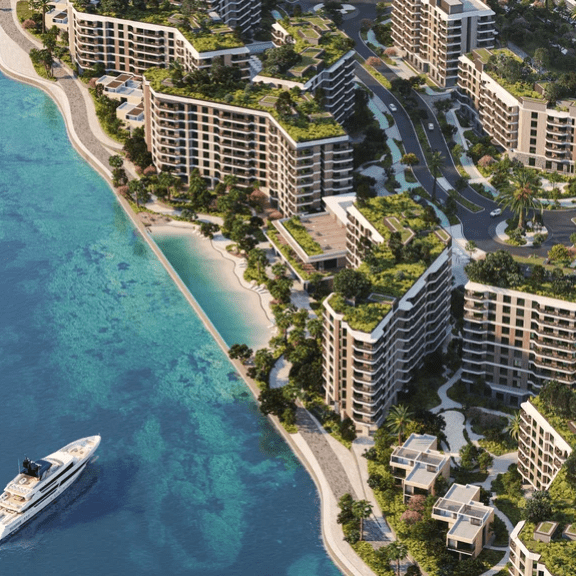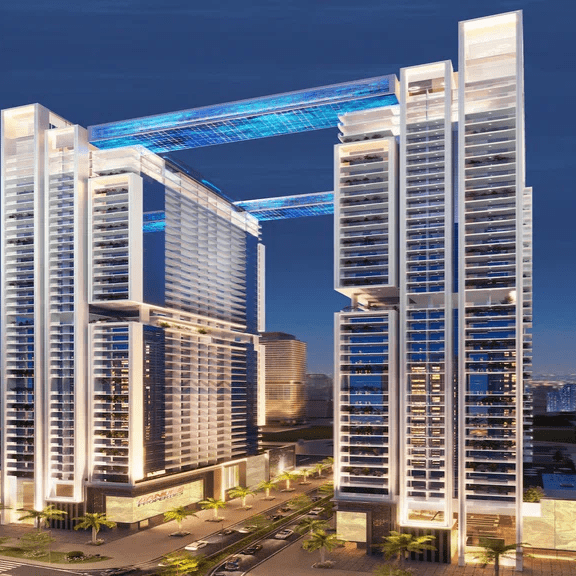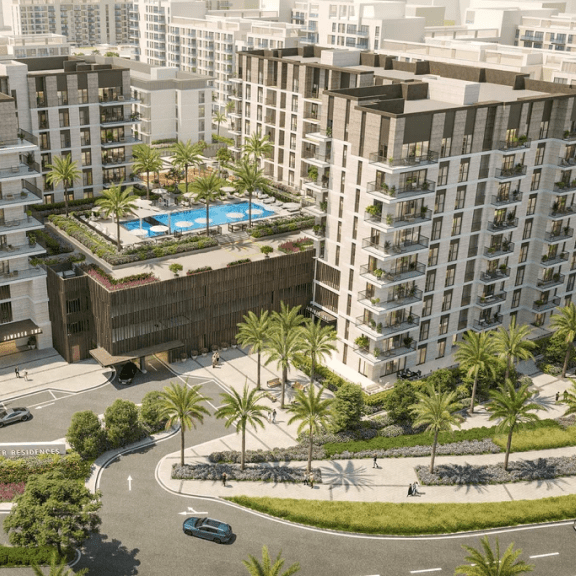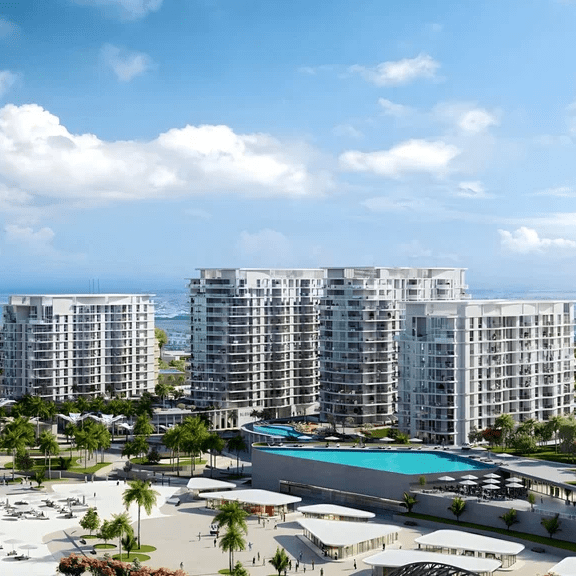Dubai has long been the centre of attention for foreign buyers interested in real estate in the UAE. This is mainly because Dubai was the first to open its market to foreigners, allowing them to invest in housing as freeholders in designated zones. Similar zones gradually appeared in other emirates. Foreigners got the right to own real estate in Abu Dhabi, the largest and richest region of the country, in 2019. This change has already had a significant impact on the local housing market, where citizens and residents previously made up 90% of property buyers. The inflow of foreign capital has stimulated development, and prices are going up, along with demand. Yet some of the trends that defined the Abu Dhabi market before the arrival of foreigners still remain.
Real Estate Market in Abu Dhabi
Abu Dhabi occupies 87% of the territory of the UAE and is the richest emirate in the country. More than 90% of the country’s oil and gas reserves are concentrated there. The population of the emirate exceeds 2.9 million people, of which almost 1.5 million live in the capital city of Abu Dhabi. Yet the number of expats here is significantly lower than in Dubai and in the country as a whole.
Until recently, non-residents in Abu Dhabi could only purchase real estate on a long-term lease for up to 99 years. The first freehold zones granting foreigners the right of full ownership were introduced in April 2019. At the end of 2022, the Abu Dhabi Department of Municipalities and Transport (DMT) announced seven new real estate investment areas available to foreigners, bringing their number up to 25. This list now comprises the islands of Yas, Saadiyat, Al Reem, Al Maryah and Nurai, the districts of Al Raha Beach, Al Rif, Al Shamkha, Al Raha Gardens, Masdar City, Al Ghadeer, and Khalifa City.
Photo: amits22345 (PxHere)
Yet locals are still the main buyers of real estate in Abu Dhabi. A report by Knight Frank claims that 85% of purchases in the Yas Park Gate by Aldar Properties, which includes 508 villas, were made by UAE citizens, while non-resident and expat buyers accounted for only 15% of the buyers.
On the one hand, a large proportion of local buyers ensures that the investors will have high returns (the net profit is 7-8% per annum on average), since the housing is in stable demand. On the other hand, while the short-term rental segment in the area is currently poorly developed, it can become a strong driver for the entire market in the future. The same applies to the commercial real estate sector.
New buildings in the UAE
Current State of the Market
Abu Dhabi’s real estate market has experienced growth since the end of the Covid-19 pandemic. This is partly due to the Golden Visa law adopted by the UAE authorities that gives foreigners a right to a ten-year residence permit. The government wants to attract highly qualified specialists and wealthy citizens and so it makes living and working in the country as easy as possible. To get a Golden Visa as a real estate investor, you need to purchase property for at least least 2 million AED (about $544,000).
Abu Dhabi’s property market saw stable growth in 2022. The Abu Dhabi real estate report by DMT shows 9,010 trade deals totalling 23.5 billion AED ($6.4 billion) and 10,023 mortgage deals worth 54.1 billion AED ($14.7 billion).
Abu Dhabi's Trending Areas
Here is the rating of Abu Dhabi's neighbourhoods by the total value of real estate deals in 2022:
- Yas Island — 4.2 billion AED ($1.1 billion).
- Al Reem Island — 3.4 billion AED ($926 million).
- Saadiyat Island — 3.1 billion AED ($844 million).
- Al Shamkha district — 2.1 billion AED ($572 million).
- Mohammed Bin Zayed City — 1 billion AED ($272.3 million).
In the segment of affordable real estate, investors preferred the communities of Al Rif, Al Ghadeer, Khalifa City, and Hydra Village, while Al Reem, Al Raha Beach, and the islands of Yas and Saadiyat were popular with buyers of luxury housing.
The data for the last quarter of 2022 puts the average price of property in Abu Dhabi at $3,100 per square metre in an apartment and $2,100 in a villa. The cost of real estate has increased by an average of 8%, with luxury housing going up the most. Some properties have gone up by 10-15%.
A number of major developments got underway in the emirate in 2022, including Saadiyat Lagoons by Aldar Properties, Yas Park Gate and Grove District on Saadiyat Island, Reem Hills on Al Reem Island, Bloom Living near the Abu Dhabi International Airport, as well as the second stage of Imkan's Riviera complex on the coast between Abu Dhabi and Dubai. There are currently over 3,000 properties in various stages of construction.
Saadiyat Lagoons (Aldar Properties)
High demand has already caused a shortage of finished villas and apartments overlooking the sea, which may worsen in the near future. Completion of current projects, many of which already sold out at the construction stage, will take three to five years, so analysts warn of a further reduction in the supply of completed properties.
Prospects and Expectations
Experts believe that several trends will affect Abu Dhabi’s real estate sector this year.
Price increase and investment inflow.
Firstly, a further increase in mortgage rates is expected, which will result in a decrease in demand and, consequently, in prices. We can also expect a large influx of foreign direct investment, especially from Eastern Europe and East Asia. Abu Dhabi's economy is stable, strengthened by high energy prices and new sources of income, namely VAT and corporate income tax to be introduced in June. So it promises to withstand any economic shocks, and, coupled with the Golden Visa programme, it will continue to attract foreign buyers.
Competition among developers and new projects.
Another trend is increased competition between Abu Dhabi's developers. Market growth has prompted many of them to take action and launch new projects. They now have the opportunity to challenge the dominant developer in the region, Aldar. Among Aldar's potential rivals is Q Holdings, which merged smaller Tamouh, Reem Investments, and Al Qudra. Bloom Holding, Reportage Properties, Webridge Properties, and Barakah are also launching major projects in 2023.
In turn, consolidation and improvement in the fortunes of developers will lead to more off-plan launches, that is, projects sold at the construction stage. New stages have been announced or are already being built in many large projects, such as Grove Saadiyat, Reem Hills, and Yas Golf Views. The Sustainable City Yas Island, a major joint project by Aldar Properties and Diamond Developers, is also available for purchase now.
Analysts note that the pace and volume of sales of new buildings are affected by inflation. On the one hand, it leads to an increase in the cost of construction, which, combined with higher mortgage rates, can turn off potential buyers. On the other hand, inflation eats up savings, which encourages people to invest in tangible assets such as real estate.
Experts also say that the growing competition will push developers to re-imagine their projects and lean towards sustainable construction and green build technologies. Increasingly expensive utilities will als drive buyers towards more energy-efficient properties.
The Sustainable City Yas Island (Aldar Properties and Diamond Developers)
Growing demand for apartments
Another global trend experts expect to see in Abu Dhabi will emerge in the wake of the Covid-19 pandemic. During the lockdown in Abu Dhabi, like everywhere else, the biggest price increase was seen in detached properties (villas and townhouses), because people sought more outside space. In contrast, eased restrictions led to a renewed interest in apartments, which drove up their prices.
Experts believe that the Yas and Saadiyat islands will remain the most popular Abu Dhabi areas for buying real estate.
Given all that, the 2023 outlook for the property market in Abu Dhabi is moderately optimistic. It is expected to continue growing thanks to steady economic growth and the influx of foreign investors. Still, it will be constrained by a number of economic factors, and as always, a change in the geopolitical situation could cause price fluctuations. The most realistic scenario seems to be a modest growth in property valuations and rents, which will not exceed 10%.




